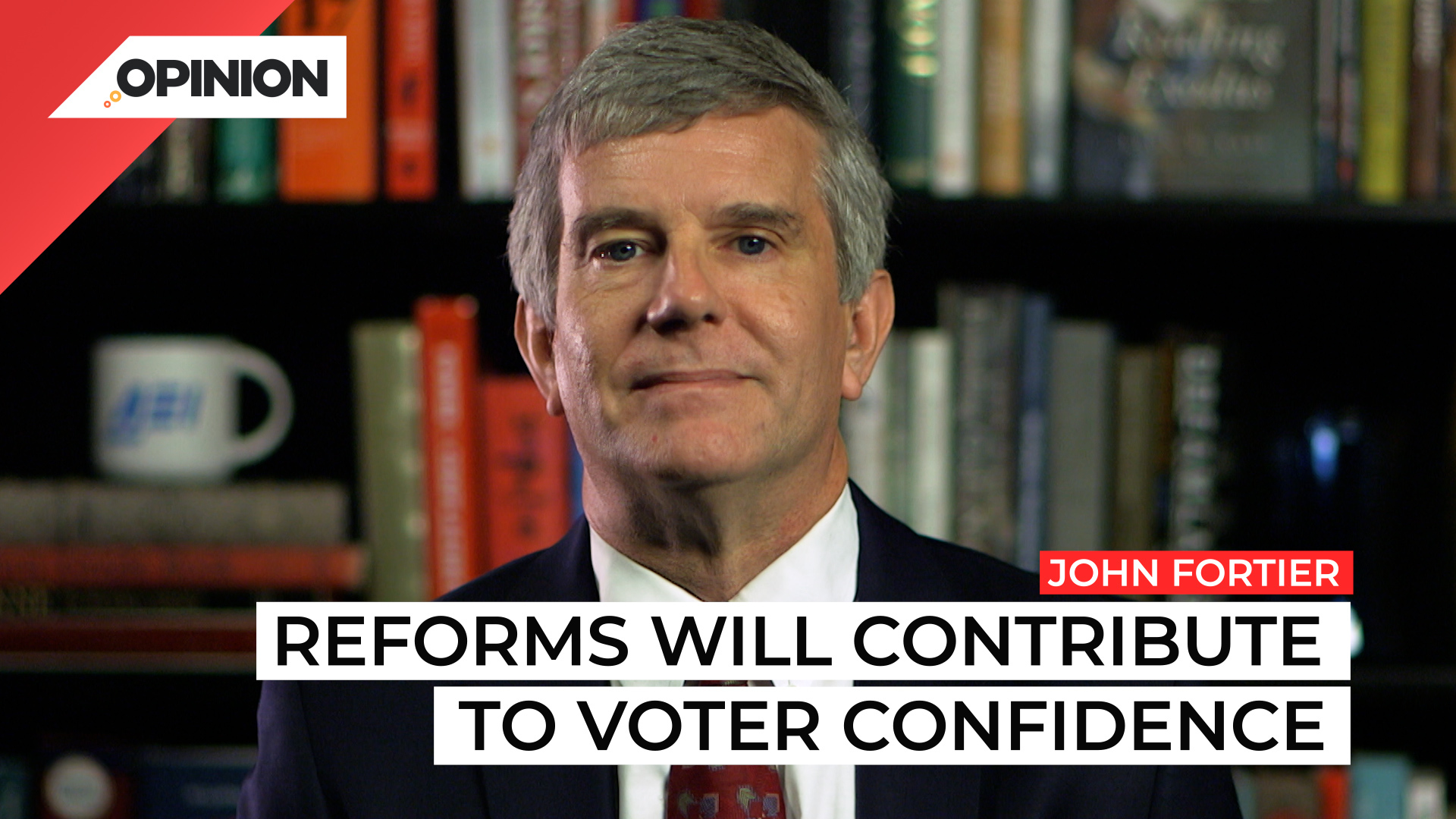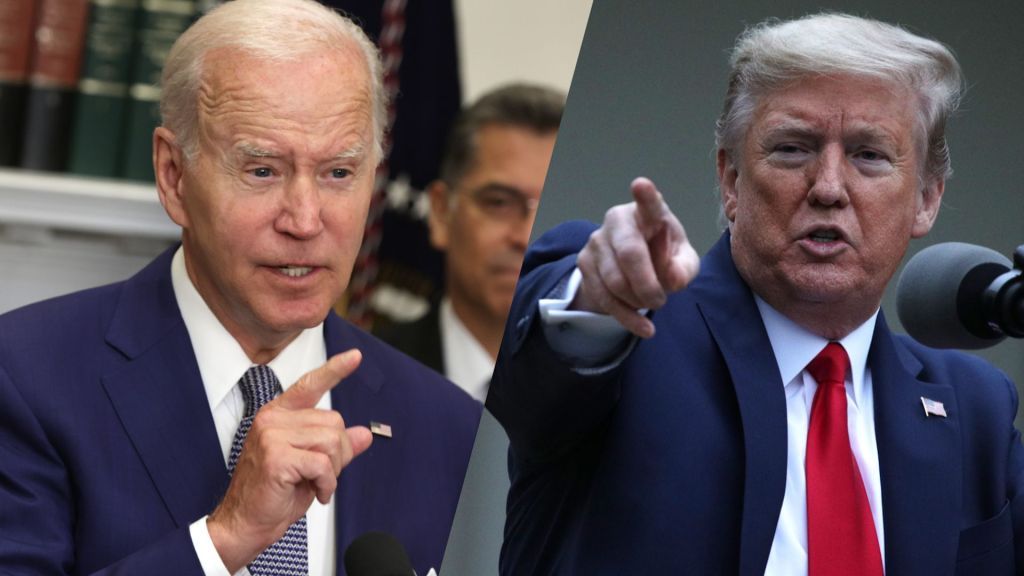
Commentary
-
Our commentary partners will help you reach your own conclusions on complex topics.
What should we make of the 2020 election? What does it tell us about improving the way we run elections in the future? First, we ran the 2020 election under adverse conditions.
A pandemic hit. It arrived without warning, during primary season. And we made major changes in the way we vote.
One example: voting by mail exploded to over 45% of votes cast, early voting in person increased, and election day voting plummeted.
Despite all of these changes, we had the highest voter turnout by far in modern history. Nearly 160 million voters and 67% of eligible voters.
So whatever you think about the election outcome or specific election controversies, running an election during a pandemic and processing the largest number of votes ever cast, is an accomplishment. Were there problems and controversies? Of course.
And some of the divisions between the two political parties as to how we should vote were exacerbated. For example, Democrats became much more favorable towards voting by mail and Republicans more skeptical.
The greatest controversies arose in states with divided leadership where political actors from opposing parties clashed, and often the emergency changes to voting left one party or the other feeling unhappy with the changes made.
Looking forward to an election run under more normal circumstances, what are the important lessons for how we vote in the future?
States are still the key place for running elections and states will continue to have different forms of voting (and that includes states having very different mixes of voting by mail, early voting and election day voting).
This means the real debate about how we vote will happen in the states, not in Washington.
One of the mistakes that Democrats made after the election was pushing an enormous package of national reforms.
We do have some national laws on elections, but they have been passed by big majorities and with strong bipartisan support.
The federal Democratic reform bill pushed with only Democratic support and narrow majorities was destined to fail.
The debate over these issues will really continue in the states, not at the federal level.
What are the big features of voting that states should work to improve?
Voter registration.
Even after years of improvement, voter lists don’t include all eligible voters, and they are not as clean and up to date as they should be.
We should improve the process for voters to register, especially at DMVs, to ensure that eligible voters get registered in the normal flow of their visit to the DMV, that they can update their information and that we can take voters off of lists where they no longer live.
We have some tools to compare registration lists with other states, but more sharing of data across states would improve the quality of lists.
Another area is the polling place. The polling place is not dead, so improve the experience at the polling place.
There has been a long-term trend to more voting by mail and an even more dramatic increase in the last election.
But voting at polling places, either before or on election day, is not dead. Polling places provide privacy and other voter protections and are convenient for many voters. All states, but especially those that are not moving to extensive voting by mail, have an interest in improving the voting experience for in-person voters.
Another area is to counting Votes Accurately, Transparently and Quickly.
Votes are counted more slowly than they were twenty five years ago.
The slowing is related to the number of votes cast by mail cast, but even more importantly, by the policies around voting by mail.–
Three key reforms are:
- An earlier processing of mail ballots
- Requiring that ballots be submitted by election day, not mailed by that date.
- Ensuring transparency in the counting process
These reforms will not wipe away all doubts about election results, but they will contribute to voter confidence in the election outcome.
-
US elections have become much more secure since 2000
Donald Trump and his allies successfully convinced many Americans that U.S. voting systems are flawed and unreliable in order to justify his attempts to remain in power after losing to Joe Biden in the 2020 election. Today, much of that skepticism still endures. Americans now confront the problem of how to restore public trust in…
-
SCOTUS case on threat of disinformation raises thorny questions
The Supreme Court recently heard arguments concerning government communications with social media platforms in Murthy v. Missouri. Plantiffs in the case claim that government agencies pressured social media companies to remove or restrict posts spreading disinformation about vaccines, elections and COVID-19. Straight Arrow News contributor John Fortier delves into the complex questions raised by the…
-
Trump v. Anderson is more complicated than it looks
The Supreme Court case Trump v. Anderson will decide whether former President Donald Trump is eligible to run as a candidate for president in 2024. Some constitutional law experts have argued that Trump cannot run as a candidate, citing what they say is a clear violation of the 14th Amendment in the U.S. Constitution, which…
-
Era of Iowa, New Hampshire kicking off election season is ending
In American politics, tradition dictates that Iowa and New Hampshire kick off the election season as the two major parties elect their primary candidates. Recently, however, Democrats have suggested revising this tradition, arguing that Iowa and New Hampshire do not present an optimal, comprehensive sample of American voters, and suggesting states like South Carolina or…
-
Why the frenzy over Georgia’s voting laws was misplaced
Georgia Gov. Brian Kemp (R) changed state voting laws after President Joe Biden narrowly won Georgia’s electoral votes over former President Donald Trump in 2020. Voting advocacy groups responded and the U.S. Department of Justice filed a lawsuit against the legislation. These lawsuits alleged that the Georgia GOP in the state legislature aimed to restrict…
Latest Opinions
-
 A24
A24
41% of Americans believe the US will see a second civil war in next 5 years: Poll
-
 Smithsonian's National Zoo
Smithsonian's National Zoo
Scientists turn to colder methods to save coral from climate change
-
 Getty Images
Getty Images
Border agent falsely accused of whipping migrants receives award
-
 Getty Images
Getty Images
Russia plans tactical nuclear drills after ‘provocative’ remarks from the West
-
 Getty Images
Getty Images
Jelly Roll, Pink among music industry's latest trademark cases
Popular Opinions
-
In addition to the facts, we believe it’s vital to hear perspectives from all sides of the political spectrum.


